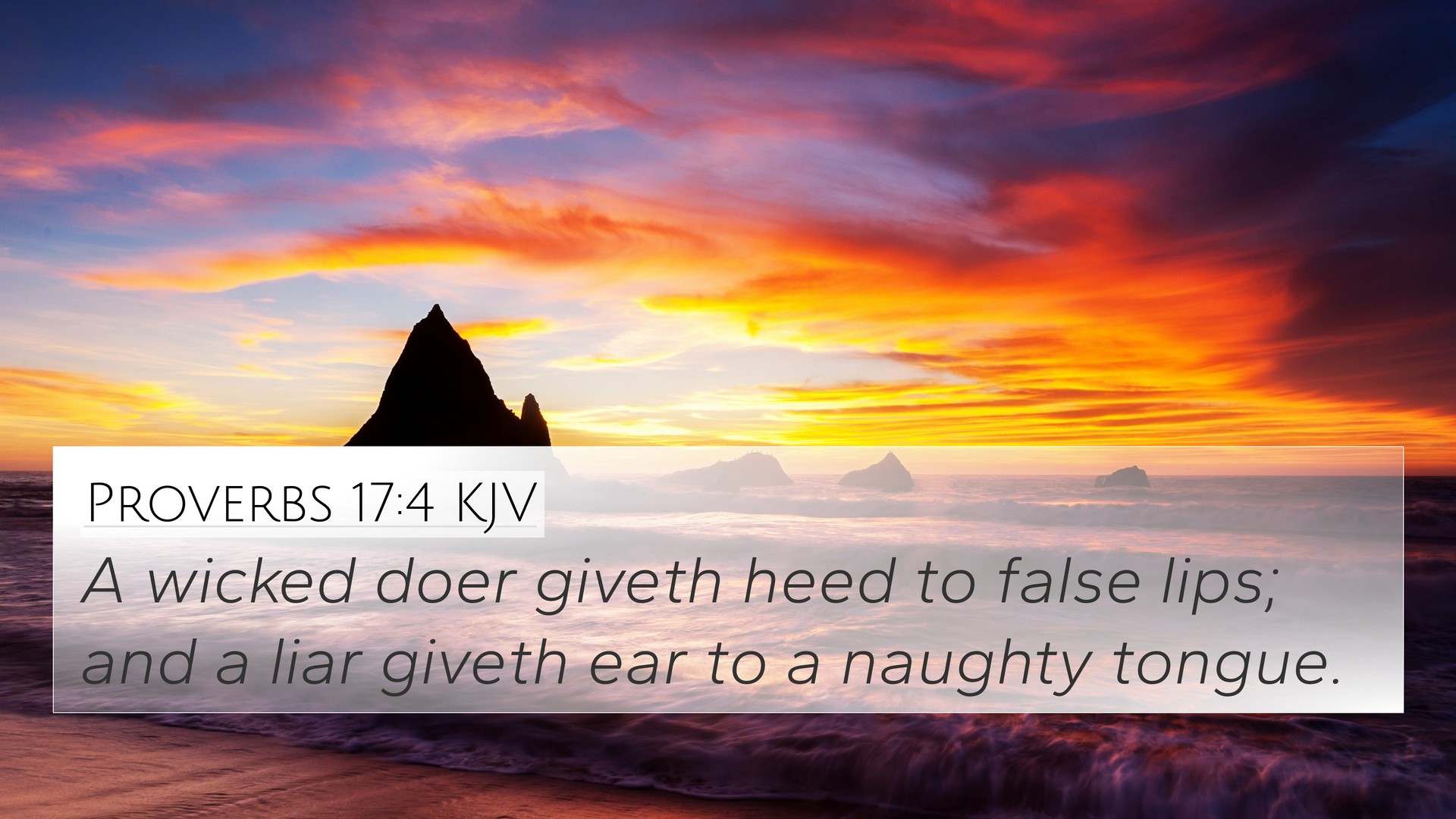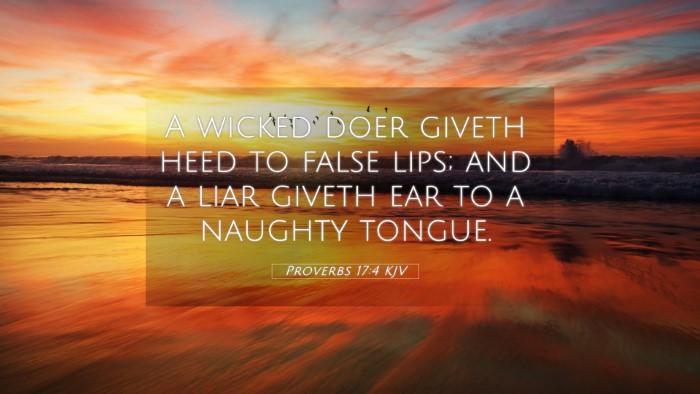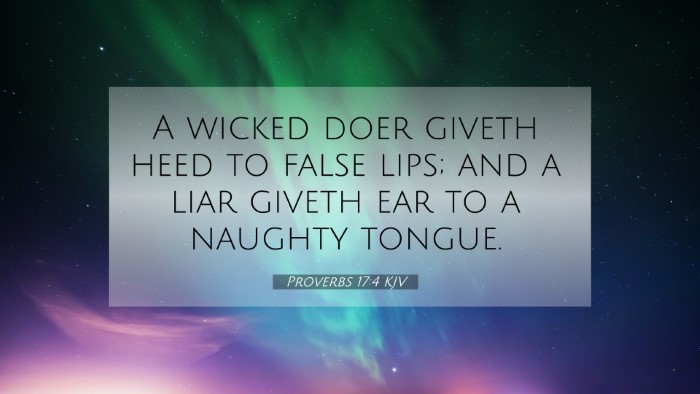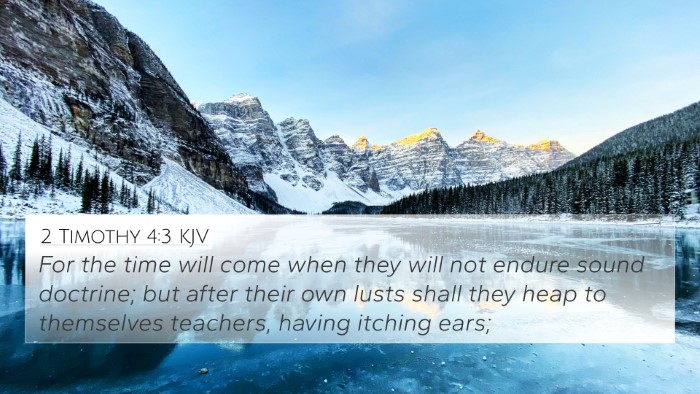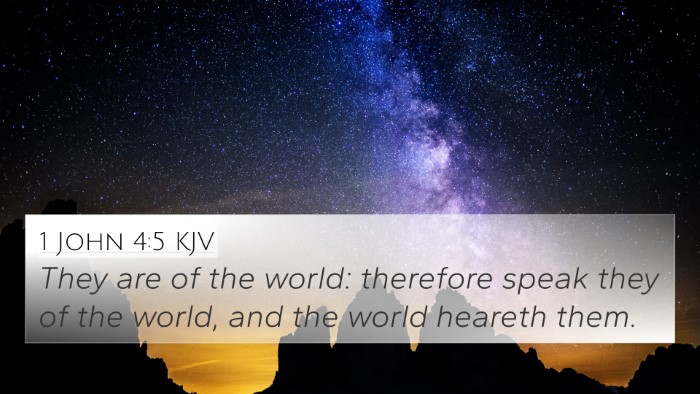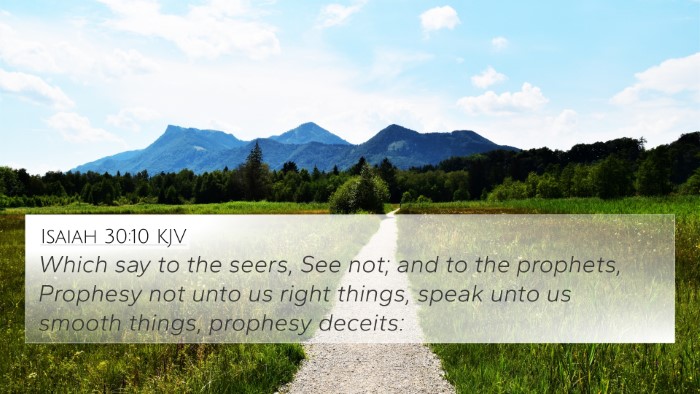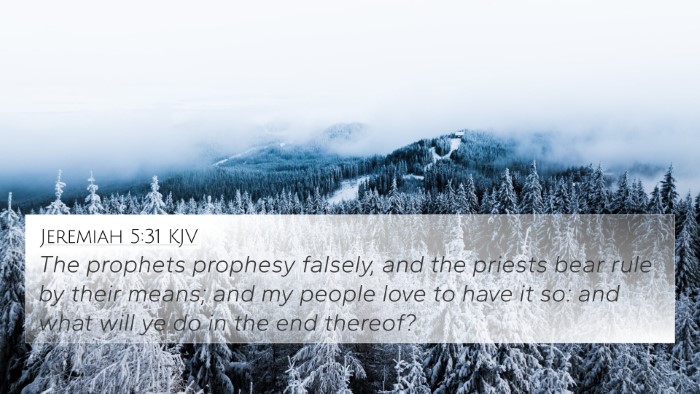Understanding Proverbs 17:4
Proverbs 17:4 states: "A wicked doer giveth heed to false lips; and a liar giveth ear to a naughty tongue."
Meaning and Interpretation
This verse emphasizes the propensity of those who do evil to be drawn to falsehood and deceit. The wicked are characterized by their inclination to listen to and be influenced by deceitful speech. This highlights the moral and spiritual dangers of associating with those who do not speak the truth.
Insights from Commentaries
-
Matthew Henry:
Henry suggests that the wicked are not just merely engaged in wrongdoing but actively seek out others who share their proclivity for deceit. This indicates a mutual reinforcement of sinful behavior among individuals.
-
Albert Barnes:
Barnes notes that this proverb conveys the idea that those who are stung by their own immoralities often turn to falsehood when they are seeking justification or camaraderie in their wrongdoing.
-
Adam Clarke:
Clarke interprets the verse as a representation of a broader spiritual truth—that falsehood begets more falsehood, and those engaged in lies are attracted to others who normalize their behavior.
Bible Verse Cross-References
To deepen the understanding of Proverbs 17:4, the following verses establish a thematic connection, reinforcing the idea of the consequences of wickedness and association with deceit:
- Psalms 101:7: "He that worketh deceit shall not dwell within my house: he that telleth lies shall not tarry in my sight."
- Proverbs 12:22: " lying lips are abomination to the Lord: but they that deal truly are his delight."
- Proverbs 19:5: "A false witness shall not be unpunished, and he that speaketh lies shall not escape."
- Romans 1:25: "Who changed the truth of God into a lie, and worshipped and served the creature more than the Creator, who is blessed for ever. Amen."
- 1 Timothy 4:2: "Speaking lies in hypocrisy; having their conscience seared with a hot iron."
- James 4:11: "Speak not evil one of another, brethren. He that speaketh evil of his brother, and judgeth his brother, speaketh evil of the law, and judgeth the law: but if thou judge the law, thou art not a doer of the law, but a judge."
- 1 John 2:4: "He that saith, I know him, and keepeth not his commandments, is a liar, and the truth is not in him."
Connections Between Bible Verses
The thematic connections between Proverbs 17:4 and the referenced verses show a consistent biblical principle: that deception and wickedness flow from an unclean heart. This serves as a caution against the company one keeps, as the wrong influences can lead to a deeper entrenchment in sin.
Comparative Bible Verse Analysis
Analyzing the similarities between Proverbs 17:4 and these cross-referenced verses illuminates how deceit is addressed throughout the scriptures. Each verse contributes to a holistic view of truth versus falsehood, encouraging believers to seek wisdom and counsel that align with righteousness.
Scriptural Cross-Referencing as a Tool for Understanding
Utilizing a Bible cross-reference guide can enhance one's study, revealing links between texts that offer greater insight into the nature of wickedness and the importance of truth. Tools for Bible cross-referencing, such as a concordance or thematic studies, are invaluable for exploring these connections.
How to Use Bible Cross-References
By employing a cross-reference Bible study method, one can explore detailed thematic studies that connect verses across both the Old and New Testaments. This is especially useful in sermon preparation or personal edification.
Conclusion
Proverbs 17:4 serves as a solemn reminder of the dangers of falsehood and the company we keep. Through thorough cross-referencing and comparative analysis, we gain a deeper understanding of biblical teachings on truth, integrity, and the consequences of wickedness. This layered interpretation encourages an ongoing dialogue with God's Word, fostering spiritual growth and discernment.
